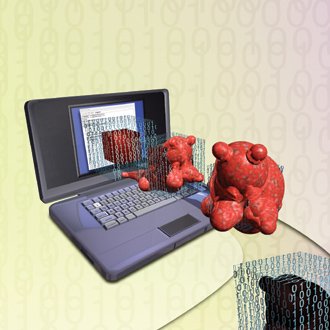Chapter 9. How Worms and Viruses Do Their Damageand How to Protect Against Them
| If you use the Internet, at one time or another your computer will most likely be attacked by a virus or worm. These pieces of malware are practically ubiquitous, and there's no escaping them. The term virus is a somewhat generic term applied to a wide variety of programs. Viruses are written for specific kinds of computers, such as PCs or Macintoshes, because the files they infect run on only one kind of computer or operating system. Viruses generally are malicious programs that invade your computer. They can cause many kinds of damage, such as deleting data files, erasing programs, or destroying everything they find on your hard disk. Not every virus causes damage; some simply flash annoying messages. Although you can get a virus from the Internet by downloading files to your computer, the Internet is not the only place where viruses can be picked up. If you've received files via email or on your company's internal network, you can get viruses that way as well. Traditional viruses attach themselves to programs or data files; infect your computer; replicate themselves on your hard disk; and then damage your data, hard disk, or files. Viruses usually attack four parts of your computer: its executable program files, its file directory system that tracks the locations of all your computer's files (and without which your computer won't work), its boot and system areas that are needed to start your computer, and its data files. At one time it was believed that data files could not be infected by viruses, but that is not the caseviruses have been written that infect data files, too. For example, some viruses attach themselves to Microsoft Word macros and are launched whenever a particular macro is run. Worms are programs designed to infect networks such as the Internet, and they're another common danger. They travel from networked computer to networked computer and replicate themselves along the way. The most infamous worm of all was released on November 2, 1988. The worm copied itself to many Internet host computers and eventually brought the Internet to its knees. The best way to protect your computer against viruses is to use antivirus software. There are several kinds of antivirus software from which to choose. A scanner checks to see whether your computer has any files that have been infected, whereas an eradication program wipes the virus from your hard disk. Sometimes eradication programs can kill the virus without having to delete the infected program or data file, but other times those infected files must be deleted. Antivirus software commonly includes both a scanner and an eradication component. |
EAN: 2147483647
Pages: 161
